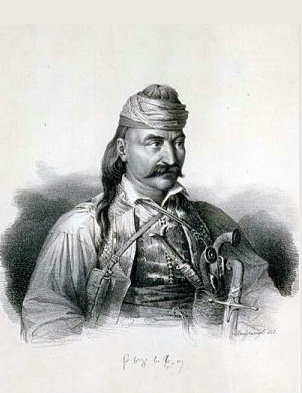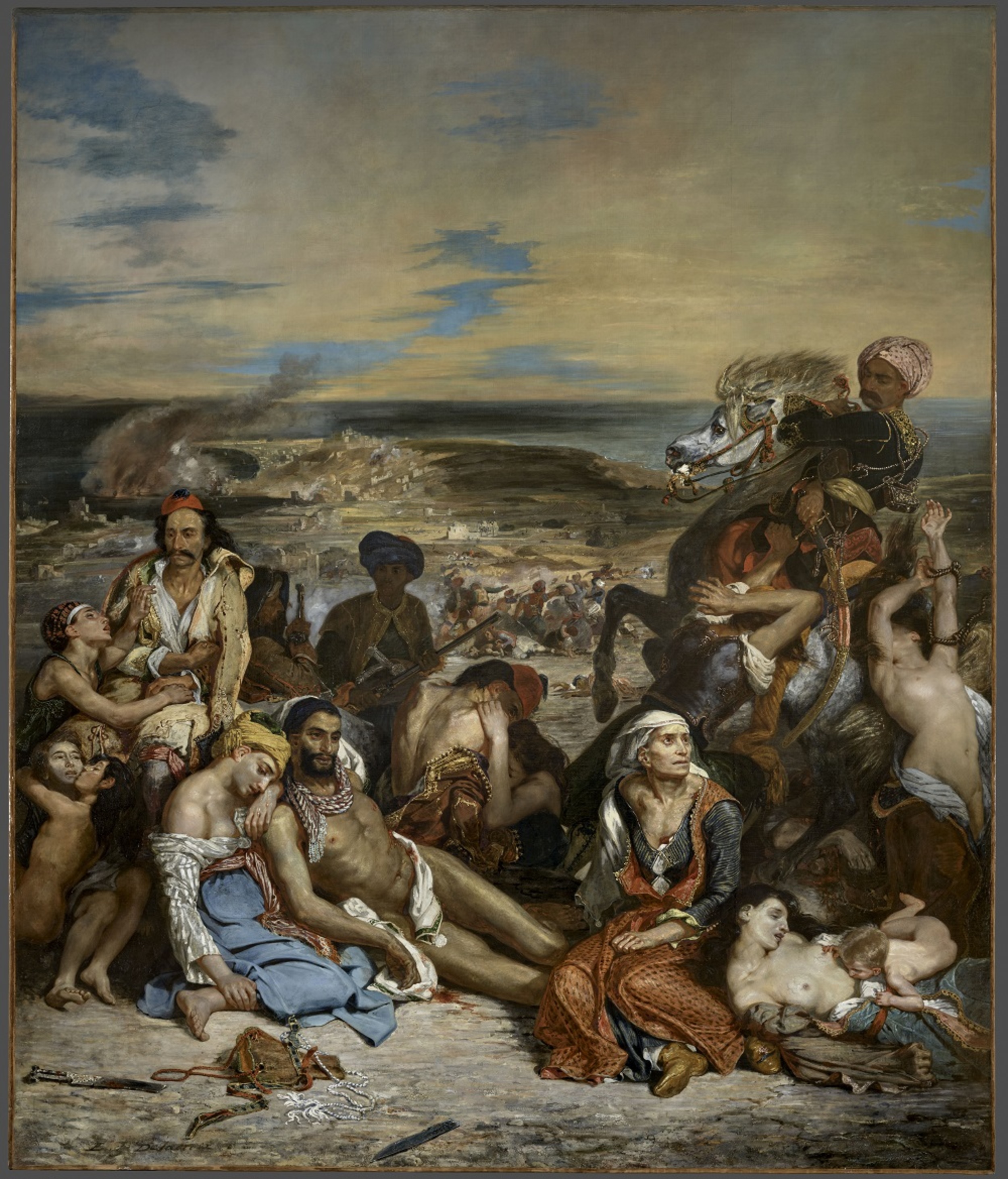Today we're going to learn all about the Greek War of Independence.
Let's rewind the clock a few years...ohhh, I guess give or take... 557 of them. The Ottomans have just sieged Constantinople and the Eastern Roman Empire known as Byzantium is finished forever.
Slowly those dark, Hun descendants with their giant sabers spread themselves out until they cross the Aegean sea. It takes time but slowly they envelop the majority of what is, today, continental modern Greece. The Greek people are Christians, yes, but in their heart of hearts, the same individualists (read, pagan anarachists), as their ancient forebearers. Imagine this spirited group becomes subjected to Muslim, empirical, sometimes tyranical rule for four... hundred... years.
They miss the Renaissance, the Baroque, and even the industrial age. But a fire is smouldering in Europe and its hearth lies in those who have spent centuries at the bottom. The French are the first to act and the fire starts spreading while the dirty workers begin clawing their way up their rooted, muddy holes, cutting any heads that appear and block their light.
Those at the bottom in Greece are the villagers. Some of those villagers, mostly restless, angry young boys, became Klefts, brigands, mountain men, guerilla fighters. They wore wide leather sashes around their waists where they tucked their pistols, sabers and knives. They grew their moustaches out until they could be seen from the back of the head.
(painting by Carl Haag)
They are part hero, part villain, doing things according to their own code and completely dependent upon their mood at the time.
They are Greece's only hope.
Striking terror in the hearts of Turks traveling under mountainous passes is their main occupation. In hopes of pitting fire against fire, the Turks start hiring "Christian" warriors called armatoloi. They were supposed to be working for the Ottomans, hunting down klefts.
The result is that no one could distinguish one from the other and they finally started even collaborating! Enter Theordoris Kolokotronis, a Greek who had worked as a brigadier for the British navy and had returned to mainland Greece. He was the perfect man for organizing these most irregular fighters.
They missed the renaissance, baroque, the industrial revolution, but they INSPIRED romanticism.
Through all of this, Europeans are watching, particularly those who spent their childhoods reading about the greatness of ancient Greece. Lord Byron and Eugène Delacroix just as two minor examples. ;)
Lord Byron even dies in Greece while taking up arms alongside the rebels in Messolonghi. His heart remains there still in the cemetery, the garden of heroes.
Delacroix was less present in the physical sense, but in the metaphysical...



